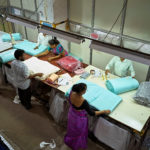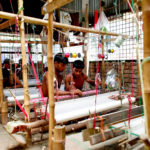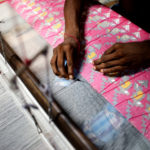Export manufacturing in low-income countries has been devastated by COVID-19. For instance, 46% of garment factories in Bangladesh report that “a lot” to “most” of their orders have been cancelled (Anner 2020), leading to mass demonstrations by workers who had not been paid for 3 months (Daily Star; April 17, 2020). Female workers are likely…
Garment
The Roles of Information and Search Frictions in Determining Working Conditions in Bangladesh’s Apparel Sector
The emergence of low-skill manufacturing sectors in developing countries has expanded labor market opportunities and generated economic benefits for women (Heath and Mobarak, 2015; Tanaka, 2017). However, given the poor conditions that characterize many low-skill manufacturing jobs, researchers have questioned whether these positions are in fact preferable to workers’ alternatives (Blattman and Dercon, 2018; Blattman,…
Whistleblowing and Worker Wellbeing: Evidence from Bangladesh’s Garments Sector
In many developing countries, the private sector lacks effective monitoring systems to provide firms with incentives for good behavior. This problem is partly due to weak and sometimes corrupt state institutions (Dal Bó and Finan, 2016), and partly to principal–agent problems within firms and limited organizational capacity (Bloom et al., 2014; Boudreau, 2019). While external…
Reducing Extreme Poverty through Skill Training for Industry Job Placement
Bangladesh has been experiencing remarkable growth in the ready-made garments (RMG) industries for the last three decades. It has become an integral and major part of Bangladesh’s economy, which contributes 13 percent of GDP and 75 percent of export earnings. For instance, in 1983 there were some forty thousand people employed in the RMG sector;…



